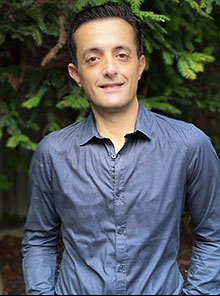CMS Extends Virtual Supervision of Residents to End of Year
Abstract
Advocacy by APA and other groups appears to have been successful in persuading CMS to extend the flexibility to supervise physician trainees virtually through December 31.
The Centers for Medicare and Medicaid Services (CMS) is allowing virtual supervision of residents at least through December 31.
In a FAQ posted by CMS on waivers, flexibilities, and the end of the COVID-19 Public Health Emergency (PHE), the agency said it is “exercising enforcement discretion to allow teaching physicians in all teaching settings to be present virtually, through audio/video real-time communications technology. …”
The FAQ also stated, “We are exercising this enforcement discretion through December 31, 2023, as we anticipate considering our policy for services involving teaching physicians and residents further through our rulemaking process.”
The allowance for virtual supervision of trainees, part of the effort to ensure continuity of care during the pandemic, was expected to end on May 11. The decision to extend this flexibility appears to be the result of advocacy by APA and other medical education groups.
In an April 13 letter to Division of Practitioner Services APA joined with the American Association of Directors of Psychiatric Residency Training and the American Association of Chairs of Departments of Psychiatry urging CMS to codify virtual supervision of residents on a permanent basis before the expiration of the COVID-19 PHE in May.
“Telehealth care by residents has been demonstrated throughout the PHE to be a safe and effective strategy for maintaining, and in many cases increasing, access to care,” the three groups wrote. “The teaching physician is ultimately responsible for the clinical outcomes of the care provided by residents. … Continuing virtual supervision for patients and residents after the end of the PHE ensures patients maintain access to effective care.”
The letter urged CMS to consider that 55% of U.S. counties have no psychiatrists, and 130 million people live in areas with a shortage of mental health professionals. The ability to supervise residents virtually is especially critical when the resident and the patient are both in rural areas.
The three organizations stated that teaching physicians have reported that care delivered by residents through telehealth is best supervised virtually and cited one APA member who said of a situation where the patient is remote, “The supervisor can see and hear the patient better and the patient can see and hear both the supervisor and the trainee better than if they are in the same room clustered around a single computer camera.”
In a March 20 letter to CMS, APA CEO and Medical Director Saul Levin, M.D., M.P.A., noted that virtual supervision allows physicians to supervise clinical staff across multiple campuses, which increases patients’ access to care.

Elias Aboujaoude, M.D., M.A., said requiring in-person supervision is impractical and places burdens on residents and attending physicians.
“APA recommends that the ability for residents to deliver telehealth services under virtual supervision be applied permanently,” Levin wrote. “At a minimum, APA urges CMS to extend the end date for this reversion to the end of 2024 … and/or to extend virtual supervision capabilities to residents in metropolitan statistical areas when their patients are in rural areas.”
Educators who communicated with Psychiatric News said that ending virtual supervision would be impractical and impose logistical burdens on teachers and trainees. Prior to the CMS extension, Elias Aboujaoude, M.D., M.A., a professor of clinical psychiatry and chief of the Anxiety Disorders Section at Stanford University School of Medicine, told Psychiatric News in an email communication, “We are facing a surreal moment in which resident and supervisor are required to be in one office but connecting with a patient who, for the most part, very much wants to stay remote.”
He has supervised residents virtually and published several articles on remote treatment modalities and pointed out that requiring in-person supervision would “likely disproportionately impact trainees and supervisors with lesser means.”
Aboujaoude also wondered how a return to in-person supervision would impact the growth and development of telehealth. “Will training programs and hospitals continue to want to invest in growing their telehealth and digital capabilities knowing that, in parallel, they also have to invest in expensive office infrastructure, building maintenance, and upkeep?”
Sandra DeJong, M.D., senior consultant to the child and adolescent psychiatry training program at Cambridge Health Alliance (CHA), said the supervision requirement doesn’t distinguish between settings and years in training. She was director of child and adolescent training at CHA from 2004-2018.
“In general, in training, we emphasize direct (face-to-face) supervision in acute care services and move from direct supervision to indirect supervision (remote and even retrospective) as a resident acquires experience and skills over their residency,” she wrote in an email to Psychiatric News. “For example, a PGY-1 in the emergency room would get direct supervision, whereas a PGY-3 doing psychotherapy might get supervision after the patient encounter via videoconferencing using notes and video clips from the session. In addition, some trainees may be fully licensed while others are still on a temporary license.” ■



